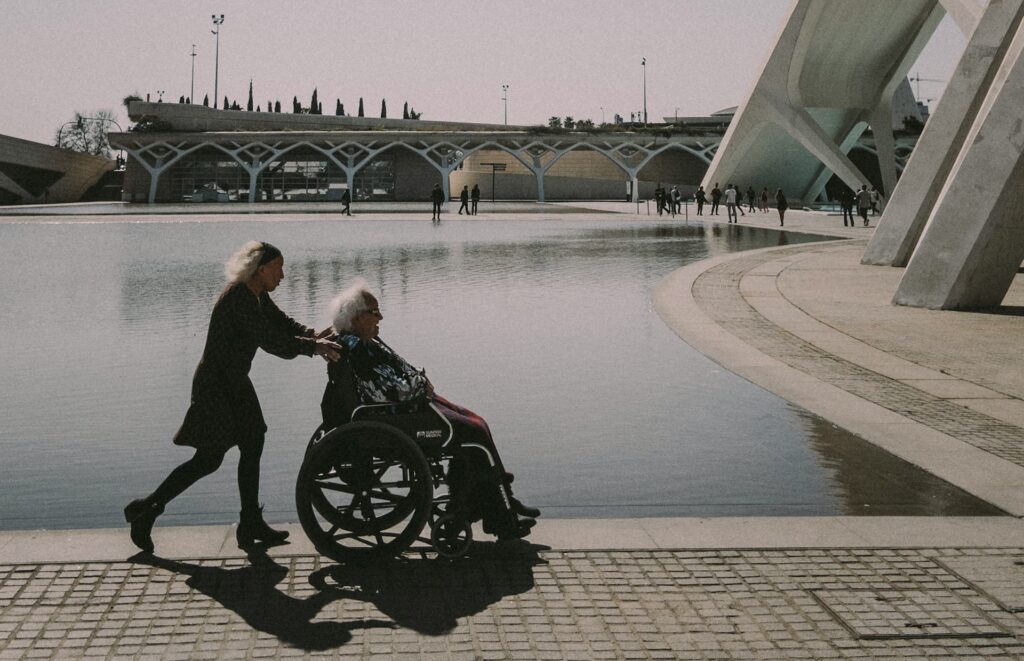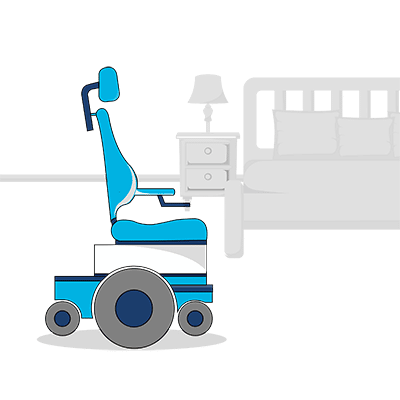Aged Care funding in Australia is routinely criticised for being below par in catering to the needs of our seniors. Baby Boomers are set to shake things up further as they enter into system in far larger numbers than what we’ve seen over the past few years. Here’s what the Minister for Aged Care, The Hon Anika Wells, has to say:
“We are going to need a fair and equitable system to meet the needs of Baby Boomers who, with their numbers and determination to solve problems, have shaken every single system they’ve come across.”
Baby Boomers make up much of the Australian population and have a reputation for advocating strongly for themselves and system overhauls. By most people’s accounts, the Aged Care system needed to improve funding anyway, so how can Baby Boomers help?
Turns out they may be forced to pay the gap themselves.
In this article
Baby Boomers made to pay?
While not formally set in concrete, a government taskforce team chaired by The Hon Anika Wells is evaluating Aged Care funding and recommended wealthy Baby Boomers pay more for Aged Care.
Home care for regular support
There’s great concern from the Aged Care sector about how to accommodate senior Australians’ expectations of good quality home life. As people grow older and need that assistance, many would like to live at home instead of in a facility.
Staying at home requires better services that are more customised at a personal level. Unlike an Aged Care facility, where a nurse can see to several people or a kitchen can cook for several people at a time, if you’re at home you need one-on-one care. It requires a personal rather than a provider-focused approach.
This is something each of us deserves, but it comes at a cost. This is where Aged Care funding reforms have moved into the spotlight for some time now.
Residential centres for Aged Care
The same applies to residential Aged Care – funding needs to be higher to offer senior Australians a better quality of life. In many instances, providers of residential care are hoping senior citizens can make this contribution themselves.
The need for greater Aged Care funding has always been important and is under mounting pressure with the anticipation of more and more Australians entering seniority. (Read more about Aged Care workers pay rise).
In an excerpt from the Guardian, The Hon Anika Wells says, “We must act now. The Baby Boomers are coming. Within a decade, our nation will have, for the first time in history, more people aged over 65 than under 18.”

How does the Australian government define Baby Boomers?
Babies that were born in the aftermath of World War II are often referred to as “Baby Boomers”. This includes Australians born in the years 1946 to 1965, according to The Australian Bureau of Statistics.
The period after the Second World War was characterised by a sudden uptick in births – resulting in a ‘baby boom’. To match this, the period was also defined by an economic boom. People lived better lives than they had for decades.
You could say Baby Boomers know what it means to have a good life. In fact, they could even be considered the custodians of the facets needed to have a good quality of life.
Aged Care funding
As mentioned, Baby Boomers have a reputation for disrupting and changing every system they’ve come across. This can be seen as a good thing for everyone but also challenging to those managing the systems. And the government is well aware its Aged Care system holds a reputation for having room to improve, especially in terms of the funding not being adequate to properly provide for participants’ needs.
This is especially so for our community of people with disability.
Anyone who acquires a disability when aged over 65 years is excluded from NDIS funding and must rely on Aged Care funding alone. NDIS will continue to provide funding for people who turn 65 years old if they were already participants before their birthday.
Let’s look at the former group…
Aged Care funding instead of NDIS funding
The over 65 years NDIS cutoff for disability funding is specifically for seniors who acquire disability for the first time. If you’ve never lived with disability, you can’t anticipate it will happen. One also becomes prone to accidents and illnesses that can result in significant disability with old age.
You might not know about this exclusion until you need support and it’s too late.
While the Royal Commission into Aged Care resulted in reforms to Aged Care funding and design, including home care packages for over 65 year olds without NDIS, is this enough?
Read our interview with president of the Physical Disability Council NSW and founder of ATSA, Chris Sparks, on the NDIS after 65.

How much wealth do Baby Boomers have in Australia?
Baby Boomers may be ageing, but in terms of their finances they’re doing so gracefully.
According to McCrindle, “Baby Boomers (45 to 64) are a quarter of the population (25%) but own more than half of Australia’s national wealth (53%).”
Although the Baby Boomer portion of the population holds much of the wealth, having been born into economic booms and creating new growth, they’re also responsible for other people. Baby Boomers are typically in a position where they contribute financially to caring for their parents, children and grandchildren.
Now, those that can afford to may also be asked to pay more towards their own Aged Care funding.
Time for the Aged Care taskforce
Not do Baby Boomers signify a big proportion of the population, they have certain quality of life expectations. Funding is obviously key to the wide range of Aged Care service providers giving our seniors the extent of quality assistance they need and deserve.
Enter the taskforce.
The Aged Care taskforce remit
The Minister for Aged Care, The Hon Anika Wells, has addressed the funding issue by putting together a taskforce to assess possible Aged Care funding solutions.
One of outcomes the taskforce has recommended to her, is changing the means testing parameters. The recommendation would require Baby Boomers with more wealth to pay more towards their Aged Care.
For example, one suggestion for means testing reforms was to heighten the ceiling on the value of the family home. However, this Aged Care means testing reform recommendation hasn’t been approved. So, we wait to find out more about what has been approved.
The Parliamentary Budget Office predicts the total sum required for Aged Care funding could nearly double over the next decade. Currently, Aged Care funding is primarily covered from tax money. Baby Boomers may be called on to help finance the gap.

Speaking of financing the gap…
While we’ve yet to see the outcomes of The Hon Anika Wells’ taskforce team recommendations, we want to shed light on a different financial gap.
That is, paying the gap to fix or repair mobility equipment and cars that service our disability community.
As Australia’s first disability and independence insurance specialist, Blue Badge Insurance works daily with people who live with disability. Our insurance plans help pay for repairs to your wheelchair, mobility equipment or car following accidental damage. We also help pay to replace these valuable items if they’re damaged beyond repair in an accident or they’re stolen.
Read more about our wheelchair insurance and mobility scooter insurance, and note we offer up to 25% off car insurance for wheelchair accessible vehicles and disability converted cars to anyone with a disability parking permit.
Want to know more? Why not click below to get a quote – it’s easy!








